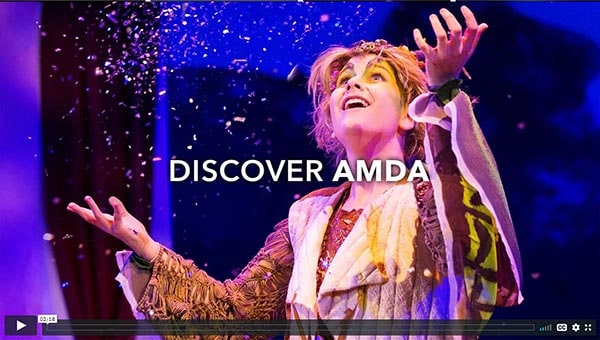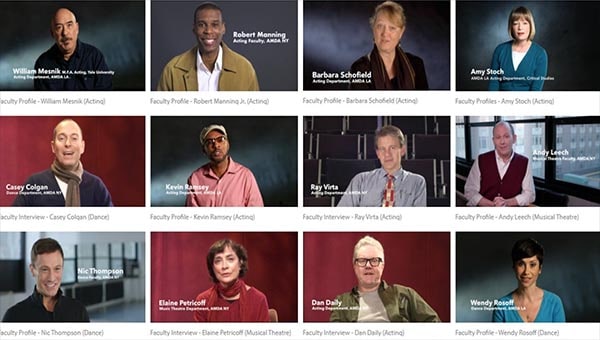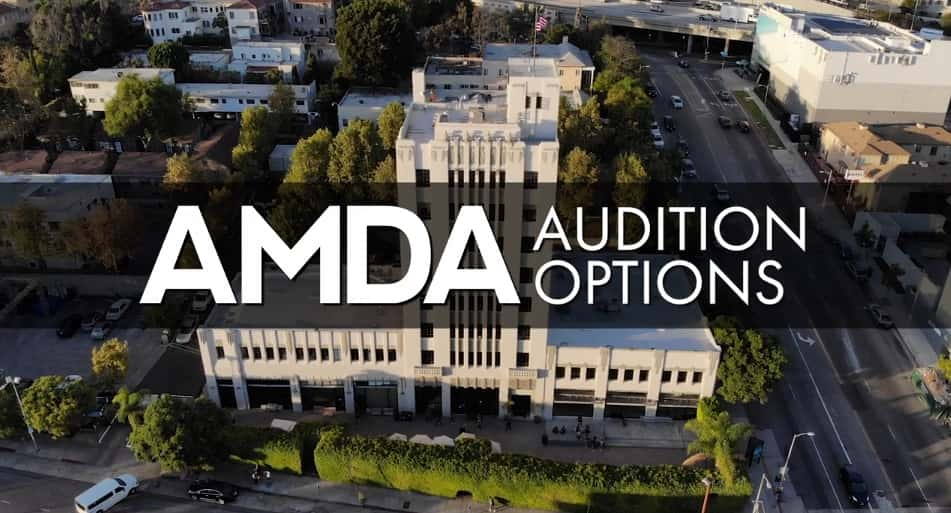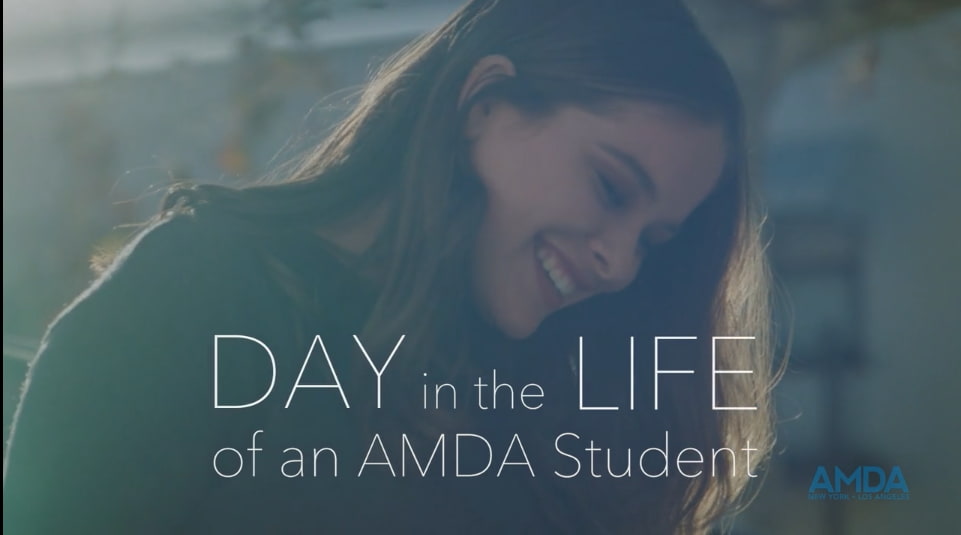COMMITMENT TO EQUITY AND INCLUSION
May 23, 2023 - Alumni, Magazine
INTRODUCTION CHIANTI BLACKMON, AMDA'S VICE PRESIDENT OF EDI
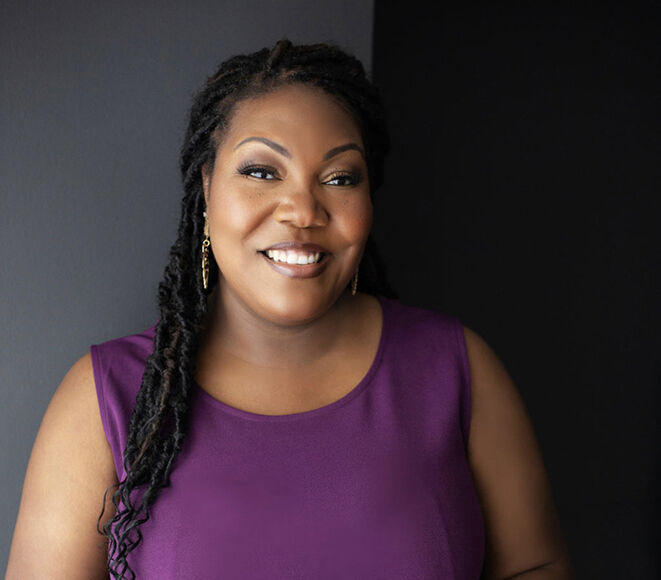
AMDA understands the unifying power of art. “Art humanizes us,” says Chianti Blackmon, vice president of Equity, Diversity and Inclusion. As a collective force, the Office of Equity, Diversity and Inclusion (OEDI) is responsible for ensuring there is both an inclusive and equitable platform of opportunity at AMDA to lift every voice, regardless of their background or how they identify. “We all learn differently, and art is integral in that way,” asserts Blackmon. “There are so many opportunities to teach and feel through art. People are moved by its different mediums and having that emotional tie in. That’s the power of it for me. It’s the place where change can happen.”
Both individuals and institutions have a role to play in creating a more equitable and just world. The team behind the OEDI is specifically dedicated to providing resources, coaching, consultation and strategies to help lead the college and conservatory toward a more equitable and just future through policy, classroom practices, activities and addressing workplace climate. Tasked with bringing AMDA’s vision of equity into fruition, the office is committed to institution-wide leadership that builds, strengthens and sustains a culturally conscious and responsive environment. Blackmon is quick to note that before these initiatives, AMDA had already been making intentional efforts to dismantle archaic industry practices known to disenfranchise minoritized groups. The OEDI was formally instituted to bolster these efforts and perform more intentional work in promoting diversity.
OEDI Initiatives
The Office of Equity, Diversity and Inclusion provides ongoing training and development designed to increase awareness and community support for a wide range of diversity issues. Blackmon recounts recent training sessions, including Anti-Racism I: Why Now, Why AMDA; A Brief History of Disability in Dance; Language as a Basis for Inclusive Teaching; Accessibility at AMDA; and Navigating Hot Buttons and Triggers. Born directly from listening circles organized following the death of George Floyd, the antiracism workshops introduced by Blackmon and her colleagues were designed to provide AMDA faculty and staff with crucial insight on navigating the many difficult conversations regarding racial injustice that were happening around them.
From hosting listening circles to organizing workshops addressing how to communicate about racial barriers inside and outside of the classroom to supporting the LGBTQIA+ community, the office is ensuring students, faculty and staff see things through the lens of equity and inclusion. “These ongoing training sessions are just the tip of the iceberg,” assures Blackmon. “We’re not just addressing issues as they come up. We are institutionalizing this work, infusing it across our campuses.”
The team’s additional emphasis on reporting hate-bias incidents ensures AMDA is always seeking to champion diversity while eliminating complacency. AMDA strictly prohibits discrimination against any person on the basis of race; color; religion; national or ethnic origin; sex; sexual orientation; gender identity or status; marital, parental, familial, veteran or military service status; political affiliation; age; or disability.
The Work Ahead
Striving for equity can extend far beyond the performance space. AMDA is committed to creating and upholding the best standards and practices regarding casting for our students in our classrooms, on our stages and for our on-camera work. As an institution predicated on providing unsurpassed performing arts education to a diverse community of creative artists, AMDA has a responsibility to eliminate typecasting on the basis of race, gender, age, physicality, profession or personality. As an example of progressive policy in action, all roles are made available to any actor whose performance can maintain the integrity of the story and who can believably inhabit the character.
By discarding old perceptions and encouraging more open communication across campuses, AMDA and the OEDI are helping transform the landscape of the performing arts. It is AMDA’s hope one day soon to see these standards and practices realized across platforms for performing artists, including Broadway, national and international stages, film and television.
Blackmon and her team see limitless possibilities for the future with their deliberate work through the OEDI, acting as thought leaders who can affect meaningful, indelible change at AMDA and industry-wide. “Developing an equity and inclusion committee is something I’m excited about,” says Blackmon while explaining the inclusivity of the team. “[We’re] inviting students and graduates to participate with current faculty and staff, having a body of folks moving our strategy forward who are thought leaders on our campus.” Blackmon imagines one day offering AMDA students the opportunity to earn social justice certificates or forming a theatre troupe that specifically models the conversations and policies her department embodies. “The heart is there,” reflects Blackmon. “Now we just need to figure out the labor.”
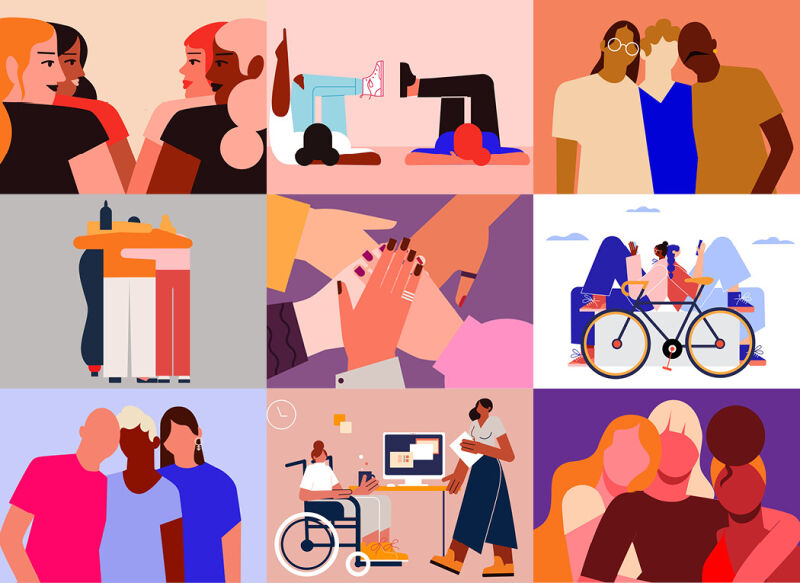
“When students leave AMDA, they leave with a dynamic toolbox for the arts — and for life.” — Chianti Blackmon
Change Takes Time
Blackmon acknowledges that significant challenges remain. “Our society frequently adopts the capitalist mindset of ‘go, go, go,’ but we need to pace ourselves. True change takes time.” Blackmon believes students are coming to AMDA at a wonderful, pivotal time, because they’re being asked to disrupt the illusion of perfection and step into an educational institution where they’re given grace while they learn. In the face of adversity, she remains grateful and encouraged by the AMDA community at large. “Most of us are doing the best we can with the tools we have at that moment. My area is sharpening those tools and helping students add more to their inventory. When students leave AMDA, they leave with a dynamic toolbox for the arts — and for life.”
AMDA’s Commitment to Equity, Diversity and Inclusion
AMDA is dedicated to dismantling existing structures that historically exclude and oppress marginalized groups. This commitment requires each of us to take responsibility to actively grow and preserve AMDA’s diverse community and culture. As such, AMDA will actively elevate and prioritize equity, diversity, inclusion and a strong sense of belonging in the curriculum, creative productions, services and administration. AMDA will steadily continue the crucial work toward the recruitment, retention and advancement of students, faculty and staff from underrepresented populations in higher education and the performing arts.







